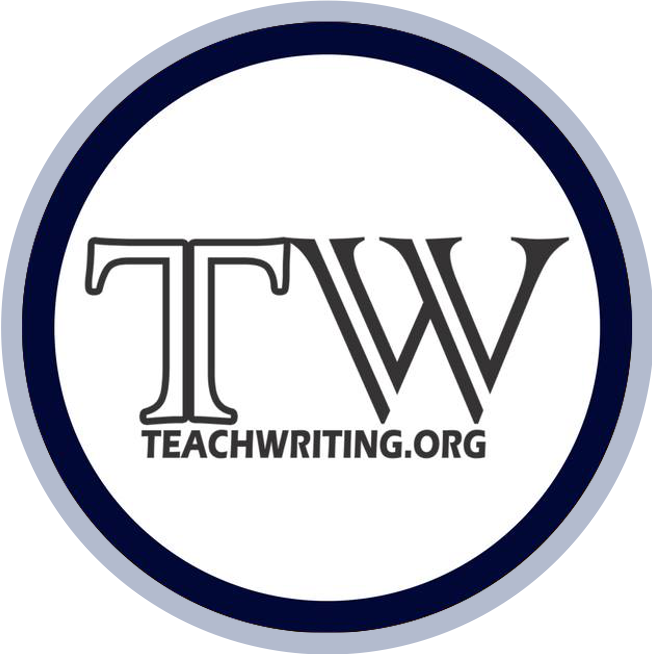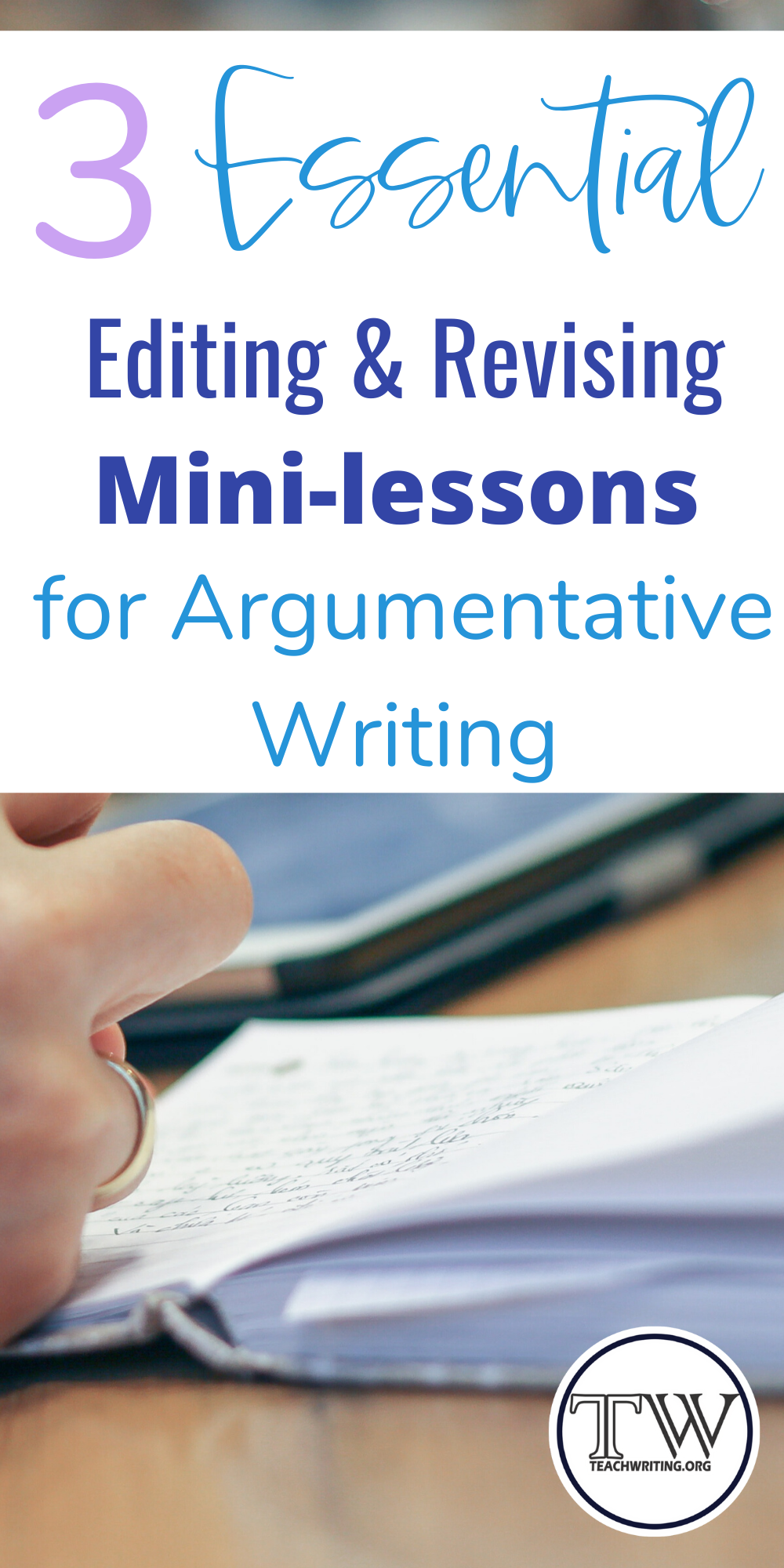Three Essential Editing and Revision Mini-lessons for Argumentative Writing
Argumentative writing is a cornerstone of writing across content areas. Essentially, all pieces of writing are an argument. A personal narrative argues a particular perspective, or theme, about life using personal life experiences. Even a how-to process essay attempts to persuade the reader that there is a particular way to do something. Then there are the more obvious essays such as persuasive and literary analysis that attempt to persuade the reader to a particular point of view. Check out the 25 Essential Handouts for Writing Workshop in Secondary ELA by Bespoke ELA for reference materials to guide editing and revision mini-lessons for writing workshop!
Here are Three Essential Revision and Editing Mini-lessons for Argumentative Writing:
Does this show that?
While this may sound like a “show, not tell” mini-lesson, it is not. One of the most important revision lessons I have my students complete for argumentative writing is to check whether or not the quotations actually show the commentary and if the commentary shows the quotation. Here’s what they do:
So for this lesson, students essentially work backwards from the commentary to the quotations. I have them first go through and highlight all of the commentary in their essays. Ideally, most of this commentary should appear right after the textual evidence, so hopefully, it is easy for them to locate in their essays.
After they go through and highlight all of the commentary, I have them go through and look at each chunk of commentary and each quotation and ask: “Does this quotation show what I have explained?” Oftentimes, students will explain something that is not show shown by quotation. Here is an example: “Macbeth says, ‘Sleep No more!’ This shows that Macbeth is planning to kill the king.” In this student example, the student has pinpointed a plot event that does not connect to the quotation. The student needs to select a different quotation that shows what is explained in the commentary. So in this case, the student needs to keep the commentary, but swap out the quote for a different one that shows what the student needs to prove. So as students go through each chunk of commentary and piece of textual evidence, they need to make sure that they match. If they don’t match, they need to make revisions as needed.
Key Words and Ideas
Another revision that they need to do is to check that the argument hasn’t changed throughout the essay. Here’s what they do:
First, students need to underline the thesis statement and each topic sentence including the part in the conclusion paragraph where they rephrase the thesis statement.
After they do this underlining, they need to circle the keywords and key ideas from the thesis statement and make sure that the same key ideas and keywords show up again in each topic sentence and also in the concluding paragraph. If they see that they have deviated from the thesis statement, they need to go back and revise the thesis statement to match the body of the essay. Oftentimes when we are writing an essay, the more we write, the more we continue to refine our thesis statements. However, students tend to forget to go back and revise the thesis in order to match the changes in the body paragraphs. This revision lesson helps students make sure their arguments are cohesive.
Powerful Verb Choices
The third important lesson for revising and editing the argumentative essay is to have students focus on their verb choices. Power in academic writing comes through verbs since students cannot use first person and inject personality and a personal experiences into their writing. Here’s what students will do:
For this revision exercise, I have students go through their essays and circle all of their verbs. This will most likely involve a grammar discussion to make sure that students can correctly locate their verbs.
After they circle their verbs, they analyze the types of verbs that they are using in the essay. Here are three questions to guide editing of verb forms:
Do you repeat any verbs? Which verbs do you use the most?
Do you use any simplistic vocabulary? Can you use higher-level vocabulary?
Have you used any “be” verbs?
Are verbs in present tense or past tense? Are they consistent?
Once students have made observations about their verb choices and forms, they will go through their verbs and change them to avoid repetition, simple language, passive voice, and tense shifts. Using “be” verbs causes passive voice, so by editing out “be” verbs, students can avoid passivity in writing. This means that the student may have to rewrite an entire sentence. Students also must note that with literary or artistic analysis it is important to use present tense verbs. They need to make sure that their verb tenses agree and that their verbs are the correct tense for the purpose of the essay.
There are many more editing and revision lessons where these come from, but I find that these specific three lessons address major components of the ideas, organization, and language/style of student writing. These are the three cornerstone revision lessons that I have my students complete for argumentative writing.
Be sure to check out the pack of 25 Essential Handouts for Writing Workshop from Bespoke ELA to use as reference materials throughout the writing process. These handouts can also be used as reference materials for a writer’s tool kit or writing center, or students can collect them in their writing folders to reference as needed throughout the school year.
What revision and editing lessons do you use with your students to target essential skills for argumentative writing? Share with us in the comments below. We’d love to hear from you!
Related Resource
About the Author
Meredith is the founder and creator of TeachWriting.org and Bespoke ELA. She has taught high school English for 10+ years in Dallas, Chicago, and New York City and holds a M.A. in Literature from Northwestern University. She has always had a connection to the written word-- through songwriting, screenplay writing, and essay writing-- and she enjoys the process of teaching students how to express their ideas. An avid tea drinker and anglophile, Meredith enjoys life with her husband, daughter, and sweet pups.







